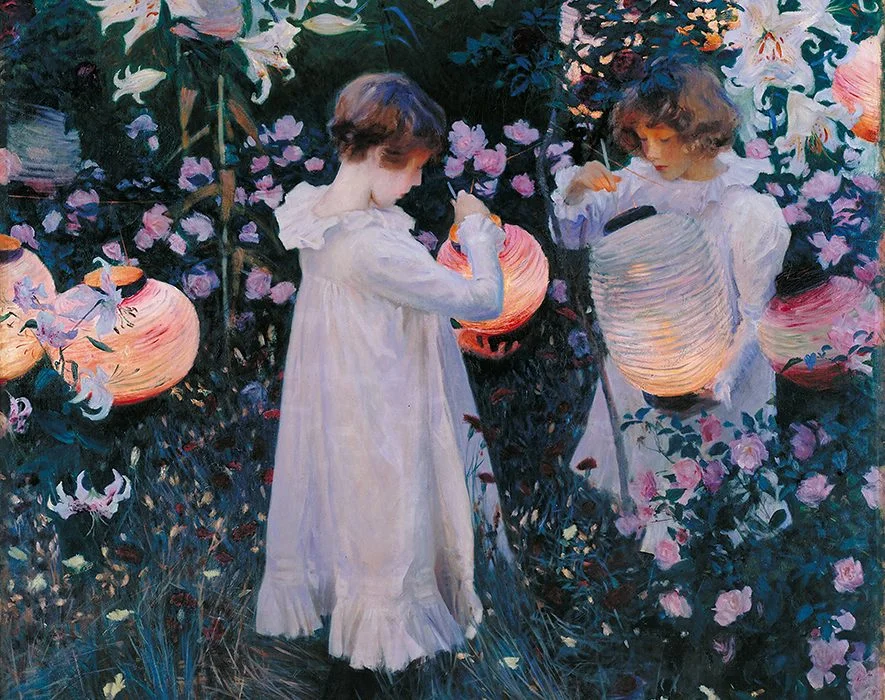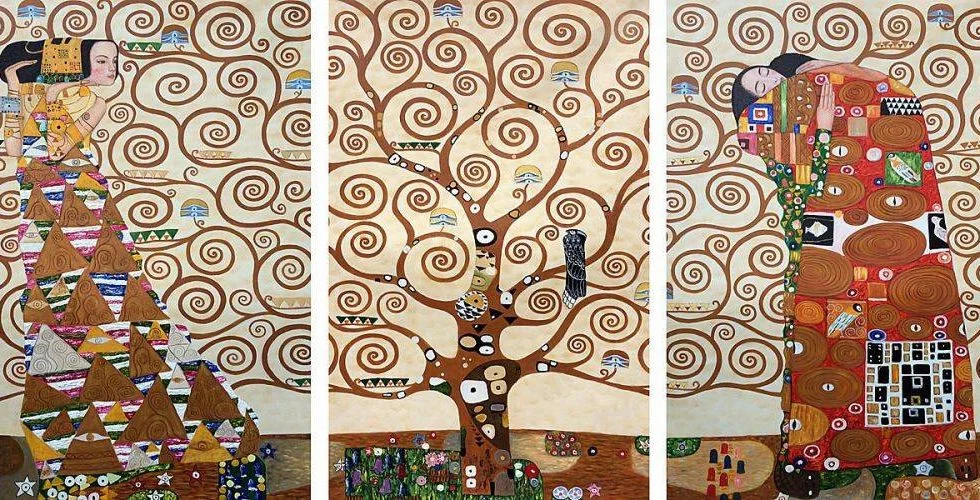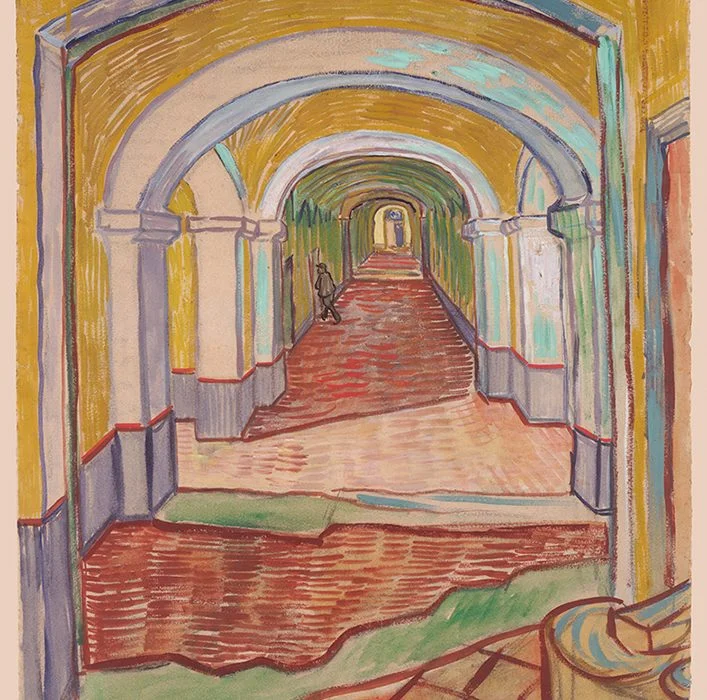Self-Knowledge • Mood
Mental Illness and Acceptance
One of the great contributing factors to mental illness is the idea that we should at all costs and and all times be well. We suffer far more than we should because of how long it can take many of us until we allow ourselves to fall properly and usefully ill.
For many years we may be able skilfully to evade our symptoms, pulling off an an accomplished impression of what counts – in our unobservant societies – as a healthy human. We may gain all the accoutrements of so-called success – love, a career, family, prestige – without anyone bothering to note the sickness behind our eyes. We may take care to fill our days with activity so that we can be guaranteed to have no time to address any of the sores that blister inside. We can rely on the extraordinary prestige of being busy to avoid the truly hard work of doing nothing – other than sit with our minds and their complicated sorrows. When pressures build, we may develop a raft of opaque physical ailments that baffle and excite the medical profession or we can acquire a paranoid world-view that identifies all our enemies with political and economic ideologies – rather than with anything psychological closer to home.
We may be deep into mid-life before the problems finally emerge with clarity. When they do, it is liable to be extremely inconvenient to those around us. We may be unable to get out of bed; we might say the same nonsensical sentence again and again. We might be still be in our pyjamas at midday and awake and wide-eyed at 2am. We might start crying at inopportune moments or shout angrily at people who had always relied on our docility.
Kind observers will say that we have had a turn, an episode or a breakdown. More impatient ones will remark that we have gone mad. The truth is that we may be closer to sanity than we have ever been, it’s just that proper self-awareness can often force us to walk through the door of seeming lunacy. Well-handled, a breakdown may be a prelude to a breakthrough. In order to rebuild our lives on firmer foundations, we may have to reckon with much that has not been properly addressed since the start: an unresolved sense of unworthiness, a fury at a neglectful care-giver, a terror around our sexuality…
In a crisis, our chances of getting better rely to a significant extent on having the right relationship to our illness; an attitude which is relatively unfrightened by our distress, which isn’t overly in love with the idea of seeming at all times ‘normal’, which can allow us to be deranged for a while in order one day to reach a more authentic kind of sanity.
It will help us immensely in this quest if the images of mental illness we can draw on at this time do not narrowly imply that our ailment is merely a freakish and pitiable possibility, if we can appeal to images that tease out the universal and dignified themes of our state, so that we do not – on top of every thing else – have to fear and hate ourselves for being unwell. We stand to heal a great deal faster if there are fewer associations like those created by Goya (of madness as the seventh circle of hell) and more of men and women a little like you and me, sitting on the sofa, able to combine our inner wretchedness with other, more temperate and attractive qualities – so that we remain every bit human, despite our terrifying convulsions, absences of mind, catastrophic forebodings and sense of despair.


Francisco Goya, Yard With Lunatics, 1794; Sylvia Plath, at home, 1962
It would help too if the places we were encouraged to visit when we were sick could have to them an architectural merit that would further enforce an impression that illness was compatible with grace, and that by addressing our mental problems we were not at the same time cutting ourselves off from humanity but simply acceding to a higher and richer variety of it.
The best philosophical background against which to wrestle with mental unwellness would be one that conceived of the human animal as intrinsically rather than accidentally flawed, a philosophy that would resolutely reject the notion that we could ever be perfect and would instead welcome our griefs and our errors, our stumbles and our follies as no less a part of us than our triumphs and our intelligence. It is Japan’s Zen Buddhism that has historically perhaps best put forward such notions, with its bold declaration that life itself is suffering, and its veneration in the visual arts – and by extension in its psychology – of what is imperfect and un-glossy: rainy autumn evenings, sadness, moss covered roofs, stained wooden panels, tears and, most famously, misshapen and irregular pieces of pottery.

Life as fundamentally misshapen and imperfect, yet still dignified and graceful. Tea bowl, 17th century; in the collection of the Rijksmuseum, Amsterdam.
Against such a background, it becomes a great deal easier for us to accept ourselves in our unwell state. We feel less guilty that we are not at work and are not playing up to the roles demanded of us by responsible others. We can be less defensive and frightened, more inclined to seek out proper care – and more likely to recover properly in time.
With a philosophy of acceptance in mind, we can recognise that whatever the particularities of our crisis (which will naturally need to be investigated in due course), our pains fit into a broad picture of a crisis-prone human condition. No one is spared. No life can escape significant troubles. Everything is imperfect. We don’t have to know the details of someone’s life to be able to guess at the scale of the difficulties they too will have encountered. We have all been born to inadequate parents, our desires will always exceed reality, we will all make some appalling errors, we will hurt those we love and anger those with power over us, we will be anxious and confused, woeful and lost. We should accept both that we are profoundly unwell – and that our ailments are entirely normal.
Japanese philosophy has another lesson for us at this point: we will probably one day be fixed but there are likely to be substantial and ineradicable marks. And yet, these marks can be worn with pride and self-respect. According to Zen Buddhism’s tradition of kintsugi, an accidentally smashed bowl isn’t to be thrown away in embarrassment, its pieces can be carefully collected and reassembled with glue inflected with gold. The traces of repair are made obvious, celebrated and cherished, as if to suggest to us – as we bring a cup to our lips – that we do not have to give up on ourselves or be ashamed of our own brokenness.

Stoneware with clear, crackled glaze, gold lacquer repair; 17th century, Smithsonian Institution.
We can confront our illness without panic or fear, with a quiet intelligent sadness perhaps best captured by the word melancholy. If we were searching for a patron saint of such a melancholy relationship to mental difficulty, we could do worse than pick the Welsh artist Gwen John, who combined a brilliant career as a painter with moments of harrowing mental collapse – but remained all the while fundamentally on the side of life. From her self-portrait, John implies that she would understand whatever we might be going through, her eyes hint that she has been there too, that she could be our guide to the underworld of our minds – and that, however much we might hate ourselves at this moment, we deserve gentleness, patience and respect as we feel our way towards repair.

Gwen John, Self Portrait, 1902


























